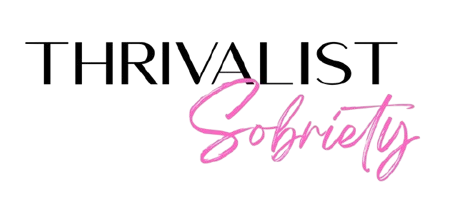
How to Control Your Drinking
I spent the majority of the 20 years I was a drinker trying to master the art of drinking ‘normally’. I knew from a very young age that alcohol was my kryptonite, each drink morphing me more and more into my drunken alter-ego – the crazy, messy, volatile, wild girl who lived inside of me. Why could I rarely find my off switch when my friends seemed to have theirs under control? With sobriety not being an option for a young Aussie teenager in the 90s, I continued to play Russian roulette every time I drank, risking so much just to try and fit in.
I set so many rules for myself before a night out. Drink a glass of water in between drinks. Don’t mix drinks. Eat a big meal before drinking, and so on. Yes, these rules did help sometimes; however, more often than not, once my brain registered the alcohol in my bloodstream, my deeply embedded neural pathways fired up, with all roads leading to a blackout.
Fast forward to roughly 1500 drunken regrets later, to December 2018. My drinking was escalating at a rapid speed. I was not in a happy place with my life. I was using alcohol to self-medicate, and it was turning more pear-shaped than ever, leading me to my final rock bottom. I was heading to a friend’s wedding and was adamant that I would moderate my drinking. I told my best friends to help me with my plan. I wrote the mantra: ‘Tonight I will moderate, tonight I will moderate’ on the inside of my hand. I set alerts on my phone to pop up throughout the night so I would remember to drink water. My plan was set, and I was ready to moderate like a normal person.
Obviously, my plan did not work out. I ended up in a blackout after only a couple of hours, and the next few days were a ball of anxiety, shame, and regret. Thankfully, I then got sober.
So, why is it that some people can moderate their drinking while some of us can’t?
It’s important to understand that everyone’s relationship with alcohol is unique, and there is no one-size-fits-all answer to why some can moderate and others can’t. There are a variety of reasons why some people may find it difficult to moderate their alcohol consumption. Here are a few potential factors:
- Genetics: Research suggests that genetics may play a role in a person’s susceptibility to developing an alcohol use disorder. Some people may have a genetic predisposition to alcohol addiction, making it harder for them to control their drinking.
- Environment: A person’s environment can also influence their relationship with alcohol. If someone grows up in a household where heavy drinking is normalized or if they are surrounded by peers who drink heavily, they may be more likely to develop problematic drinking patterns.
- Mental health: Mental health conditions such as anxiety, depression, and PTSD can increase a person’s likelihood of developing an alcohol use disorder. Additionally, alcohol can temporarily relieve symptoms of these conditions, making it harder for individuals to limit their consumption.
- Social pressure: Social pressure to drink can be a significant factor for some people. If someone feels that they need to drink to fit in or feel accepted, they may have difficulty moderating their consumption.
Alcohol abuse changes our brain
One theory for why moderation is impossible for some people is that when a person has developed an alcohol use disorder, their brain has likely undergone changes that make it more difficult to moderate their alcohol consumption. Chronic alcohol use can lead to the formation of deeply embedded neural pathways in the brain that reinforce the desire to drink in a certain way. This was most certainly the case for me. Once our brain has been wired this way and it takes a tonne of work to change this.
Another theory is that not being able to moderate is due to a shift in the brain regions that control behaviors associated with drinking alcohol. Moderate drinkers have their alcohol consumption regulated by a brain region called the dorsomedial striatum (DMS), which controls goal-oriented behaviors. However, in individuals with alcohol use disorder, control shifts to the dorsolateral (DLS) striatum, a region that regulates habitual actions – like binge drinking! (Corbit et al., 2012).
And for people with an alcohol use disorder who are abusing alcohol, when they drink their brain is impacted meaning they are no longer fully in control of what they do (including how much they drink). Additionally, alcohol impacts the prefrontal cortex, the part of the brain responsible for decision-making and impulse control. Alcohol abuse can damage this part of the brain, making it harder for individuals to control their drinking behavior.
So, how can you control your drinking?
Once you have developed an alcohol use disorder, it is extremely hard to drink alcohol in a moderate way long-term. You may find that initially it works for a while, you set yourself loads of rules and guidelines to follow. You may track your drinks in a journal and reward yourself with gifts when you succeed with a night of moderate drinking. But your addicted neural pathways are still deeply embedded. It’s only a matter of time until you slip up and over-drink again.
Sticking by all of these tight rules and guidelines is also such an exhausting task. It takes up so much mental space and energy that would be better spent on other tasks such as creating new healthy sober neural pathways, spending quality time with loved ones, exercising or meditation.
Thankfully, neuroplasticity means that the brain has the ability to change and adapt, and with the right treatment and support, you can overcome your alcohol use disorder and develop new neural pathways that support healthier behaviors.
The first best place to start if you do have an alcohol use disorder and want to moderate in the future is to take a break from drinking altogether for at least 8 weeks, and do ‘The work’ to rewire your neural pathways before even considering drinking again.
At Thrivalist, ‘The work’ refers to complete the Signature Sobriety Course, immerse yourself in the Thrivalist community include the coaching calls and expert workshops, implement healthy habits such as exercise, meditation and good nutrition, address the underlying root causes of your drinking and mental health conditions and so on.
Many Thrivalist Members come to our community wanting to moderate and then go on to abstain for 8 weeks and complete the Signature Sobriety Course and do ‘The work’ and then end up freeing themselves from the alcohol trap, seeing alcohol for what it is (poison in a pretty package) and never drinking again.
This is what Thrivalist Member Jane has to say:
“I had no expectations when I joined Thrivalist. After years of trying to moderate and making false promises about ‘booze free weeknights’ or ‘just one or two,’ I googled ‘sobriety support for women,’ and came across Lucy’s wonderful community. Her course and content is so extensive, accessible and curated for women. Cleverly – it’s not primarily about your relationship with alcohol but the relationship you have with yourself!
Thrivalist has taught me that sobriety is not about white knuckling it, but about valuing yourself and choosing a life that you want. The benefits of sobriety permeate EVERY aspect of your life, they’re limitless. I could not have done this without Lucy’s support and the accountability and community of Thrivalist. I thought I was signing up for some willpower strategies but instead it’s been empowering!”
Choosing sobriety over moderation may be the most freeing choice you’ll ever make
By deciding to take a break and not drink alcohol for a set period of time (recommended at least 8 weeks) rather than moderating, you will free up so much mental space and feel immediately lighter and liberated from the constraints of trying to control your drinking.
So why not take the first step with the Thrivalist Membership and get started on this beautiful, life-changing journey!

Post a comment